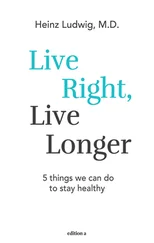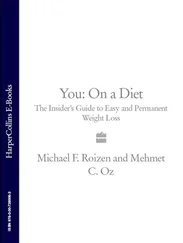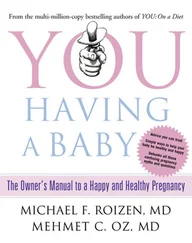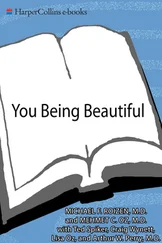Quit-Smoking Plan
Deep-sleep Programme
Medical Tests You Need
Ultimate Workup
Deep Breathing and Meditation
Stress Management
Vital Vitamins and Supplements
Detox Plan
The YOU2 Workout
Chi-gong Workout
 YOU Tools: Hereand throughout the book, we’ve created programmes that you should implement in your life. They’ll help you decrease stress, stop smoking, get the right lab tests, deal with anger, and so many other things. In addition, you’ll get a special chapter on ways you can improve your body (and mind) with workouts that work for everyone.
YOU Tools: Hereand throughout the book, we’ve created programmes that you should implement in your life. They’ll help you decrease stress, stop smoking, get the right lab tests, deal with anger, and so many other things. In addition, you’ll get a special chapter on ways you can improve your body (and mind) with workouts that work for everyone.
 The YOU Extended Warranty Plan:At the end of the book, we’ll provide a fourteen-day plan for doing the little things every day that make a big difference so that you can live longer and live younger. This plan will serve as the blueprint for your future decades.
The YOU Extended Warranty Plan:At the end of the book, we’ll provide a fourteen-day plan for doing the little things every day that make a big difference so that you can live longer and live younger. This plan will serve as the blueprint for your future decades.
YOU: The Principles of Longevity
It turns out that one of the best predictors of ageing isn’t how slowly you drive or whether or not you wear tartan trousers. It’s your own perception of how healthy you are. So indulge us for a moment and answer this question:
How healthy are you compared to other people your age?
 Excellent
Excellent
 Very good
Very good
 Good
Good
 Fair
Fair
 Bad
Bad
If you selected fair or bad, you’re thirty times more likely to die in the next two years. If that’s not enough to scare the cream cake right out of your mouth, then we’re not sure what is. But we’re not in the business of trying to frighten you to make changes; we simply want you to see that you’re responsible for making your own “most livable city” list. Are you happy in your body? Do you want to live there? Where do you rank your own health? Would it top anyone’s list?
The answers to these questions provide the ultimate answer to how long and well you will live. Why? Because the truth is that you are likely to have a gut feeling about how well you’re living; about how healthy you are and about your personal weak links. Your innate feelings about your body may lead to the ultimate insight – that you may not be heading in the right direction. Luckily, science is here to help. And given what science has uncovered recently (recently, as in some of this stuff could never have been talked about ten or even five years ago), you’re going to be able to make the changes.
Before we jump into the book with explanations about these wondrous biological processes – and the specific conditions and ageing-related problems you can control – let’s explore what, in fact, science has found. Once you understand these new principles of longevity, you’ll be better equipped to shift your actions. These five principles will change the way you think about the way your body ages.
1. Ageing Is Really About Trade-offs
Despite what you think, ageing – in the traditional way that we think of it, with everything slowly and painfully shutting down – isn’t “meant to be”. It’s not an effect of life. It’s actually more of a side effect of a grander plan for humans.
A lot of people think that creaky joints, craggy nails and cranky bowels are simply part of the deal. You get to live to eighty-something; then, in exchange, you’re going to have your fair share of misery along the rest of the way. Horrible being old, eh? Hold on. Yes, there is a trade-off, but it’s not that one. If you take a look at every biological process that happens in your body, there’s an evolutionary reason why it works that way, and that reason, without fail, is to ensure the survival of the species. That is, evolution has deemed the perpetuation of your genes to be much more important than the perpetuation of your individual life. Your biological processes are designed to protect you only long enough to reproduce and to raise your young. In fact, it wasn’t until the mid–twentieth century – at least in developed countries – that human beings could expect to live much beyond their reproductive years.
Those processes that make perfect sense for reproduction may not work in your favour as you get older. That’s ageing. The systems designed to protect you until you finish reproducing (whether you’re actually reproducing is unimportant) can be maladaptive as you age. When you look at ageing through the lens of the gene, rather than the lens of the individual, it all makes much more sense. These trade-offs are what we’ll occasionally refer to as the YOU-nified theory of ageing – the fact that ageing isn’t some master plan for life but, rather, an offshoot.
2. Ageing Isn’t About Breaking Down as Much as It Is About Repair
Stuff breaks. Cars, computers and relationships all have their own breaking points. And to suggest that stuff will not break either through acute injury (a fire in a building or a torn knee ligament) or from wear and tear over time (a fifty-year-old road or an overused back) would be misleading. While it’s obviously important to keep your biological systems from breaking down, the real secret to longevity isn’t whether or not you break; it’s how well you recover and repair when you do. Our bodies, in fact, weren’t designed not to break down (legs as thick as trees may not break, but they wouldn’t be very nimble). They were designed with a great efficiency and ability to repair themselves.
As with a car, you’ll get a lot more mileage out of your body if you perform routine maintenance. Ageing is essentially a process in which your cells lose their resilience; they lose their ability to repair damage because the things you might never have heard of (until now), like mitochondria and telomeres, aren’t working the way they should. But it’s within your power to boost that resilience and keep your vehicle going an extra couple of hundred thousand miles.
3. Ageing Happens from Both the Inside Out and the Outside In
Many of us like to think that ageing is a magical process that happens deep within our bodies; that some so-called gremlins of gerontology ratchet down our cells and our systems so we grow old. You’ll learn in this book that ageing is not only about those cellular processes, but, more important, it’s how you respond, adapt to and deal with the stressors that affect you from the outside – things like sun and stress and slippery pavements. What does that mean? It means that ageing is really about the rate of ageing – specifically, how the outside and inside factors accelerate or decelerate your ageing. Here’s the big secret about ageing: your rate of ageing doubles every eight years. So, if we were able to maintain a forty-year-old’s rate of ageing for the rest of our lives, we would live past the age of one hundred and twenty and “die of old age”. While inside out and outside in both play a role – and both influence each other – your job is to try to manage both forms, so that you slow the real culprit in growing old: the rate of ageing.
Читать дальше
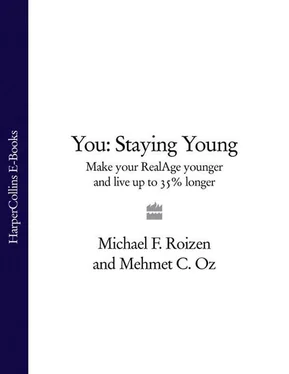
 YOU Tools: Hereand throughout the book, we’ve created programmes that you should implement in your life. They’ll help you decrease stress, stop smoking, get the right lab tests, deal with anger, and so many other things. In addition, you’ll get a special chapter on ways you can improve your body (and mind) with workouts that work for everyone.
YOU Tools: Hereand throughout the book, we’ve created programmes that you should implement in your life. They’ll help you decrease stress, stop smoking, get the right lab tests, deal with anger, and so many other things. In addition, you’ll get a special chapter on ways you can improve your body (and mind) with workouts that work for everyone. Excellent
Excellent